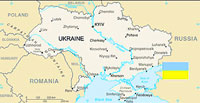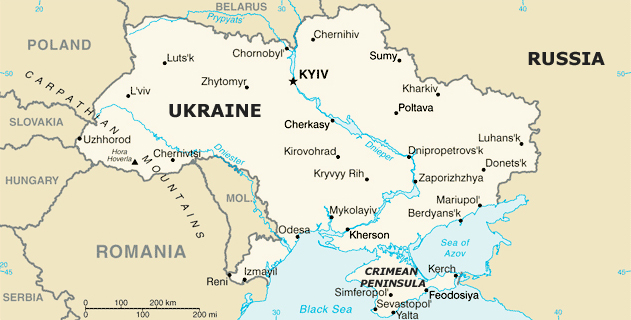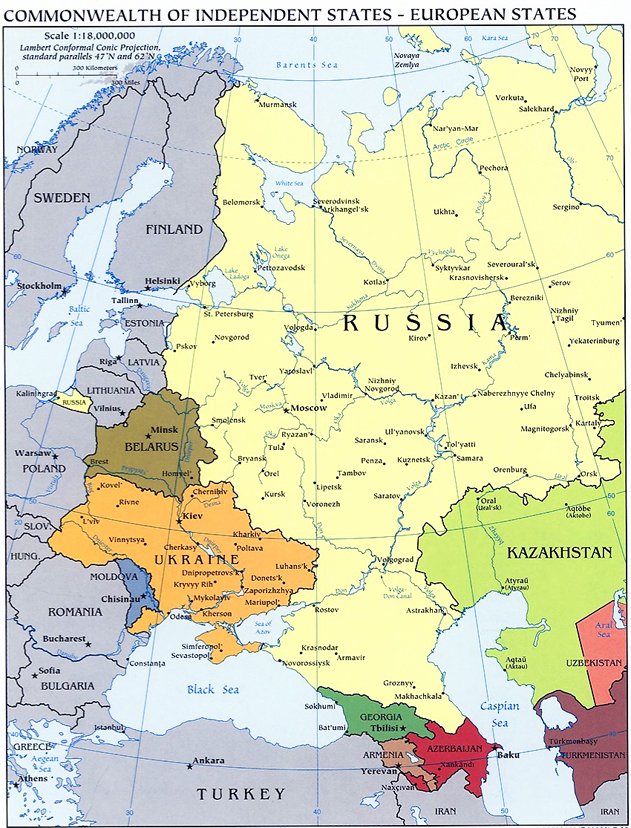Fallacies in Support of Russia’s Ukraine Policies; RE: 2014-#176-Johnson’s Russia List/Stephen Cohen

Subject: RE: 2014-#176-Johnson’s Russia List/Stephen Cohen
Date: Fri, 15 Aug 2014
From: Keith Smith <keith.smith@cepa.org>
Ambassador Keith C. Smith (Ret.)
Center for European Policy Analysis
1225 19th Street NW, Suite 450
Washington, D.C. 20036
August 15, 2014
Fallacies in Support of Russia’s Ukraine Policies
By Keith C. Smith
Center for European Policy Analysis
I read with considerable interest Stephen F. Cohen’s long piece carried in the Johnson List on August 13. I agree with his statement that personal attacks should not be used in order to influence opinion one way or another concerning the Kremlin’s present foreign policies and its military intervention in Crimea and Eastern Ukraine. He is correct in asserting that this can lead to disastrous policies.
Unfortunately, there are places in his article where Professor Cohen brands those who disagree with him as “neo-Cold Warriors.” He also freely claims that the Maidan protests were, “strongly influenced by extreme nationalists and even semi-fascist street forces…” This is certainly not the scholarly response that Cohen is asking his opponents to engage in.
His scholarship is not up to the level that he wants in this discourse. He claims that a “Ukrainian civil war” was “precipitated by the unlawful change of government.” And yet, even neutral journalists reported that the takeover of Donbas cities and villages were [preceded] by the Russian military take-over of Crimea and calls by “pro-Russian” forces in the East to become part of Russia. There was no attack by Ukrainian Government troops either in Crimea or in Luhansk or Kharkiv. Marking this as a civil war, particularly in light of the nationwide referendum, is quite a stretch of the imagination. The military control of Eastern cities was initiated by armed individuals (domestic and Russian) who were under no security threat by the new authorities in Kyiv.
Cohen terms the Eastern region of Ukraine a “region absolutely essential in Moscow’s view to its national security and even to its civilization.” Ok, assuming that is correct, does that justify military intervention into Ukraine? Does Cohen not believe that Ukraine is a sovereign state? It sounds as if he agrees with Putin’s comment that Ukraine is not a real country. That assertion by Cohen and Putin leads one to question whether Russia should accept the territorial integrity of any country that was forced into the Soviet Union. After all, the Kremlin still insists that the Baltic States “voluntarily joined the Soviet Union in 1940.” There are Russian thinkers in the Kremlin (Dugan, for example) who favor re-incorporation of the three Baltic States into a “greater Russia.”
Cohen appears to see the regional political dynamics only from the viewpoint of Russia. What about the territorial and political rights of Ukraine and other neighbors? Are their interests in sovereignty not on a par with those of Russia? What gives Putin the right to assert that his definition of Russia’s interests trump those of Ukraine? Yes, the U.S. has foolishly invaded other countries in recent years, such as Iraq, but never with the interest of making their territory part of the United States. The U.S. left Iraq and is preparing to leave Afghanistan after the holding of free and fair elections brought in governments that reflected the will of the people. Russia has hindered the work of the OSCE and others who are attempting to ensure that the will of the people in Eastern Ukraine is respected. Why can Russia not accept real outside monitoring of events in Eastern Ukraine – or even Crimea?
As for the claim that Moscow is reacting to NATO’s attempt to encircle Russia, one has only to look at the repeated attempt to draw Russia into closer cooperation with NATO. Cohen appears to accept the claim that NATO enlargement was part of a grand strategy by the West to weaken Russia? Does he not see that the enlargement of NATO was resisted for several years by many NATO members? It was the new members, who were motivated by continuing fear of Russia, who insisted on the security of membership in NATO. Russian opinion polls have for the past twenty five years listed the Baltic States as belonging in the list of top five “enemies of Russia.” The people of these countries read these polls. NATO expansion was an attempt to make the Baltic States and former Warsaw Pact states feel secure enough to establish normal and fruitful relations with Russia. Moscow’s use of energy cut offs to the Baltic States (1992, 1994, 1998-9, 2004) and to Ukraine (1994, 2004, 2009, 2014) simply increased the fear of Russia. Meanwhile, Putin and Lavrov keep repeating the falsehood that the West agreed to no expansion as a quid for Russia accepting German unification.
Cohen makes much of the “demonization of Putin.” I agree that this is not useful. But, he might take a closer look at the demonization of the U.S. and of centrist Ukrainian forces in the rigidly controlled Russian media and the repeated falsehoods told by Putin and Lavrov. I believe that a little balance is needed in Cohen’s analysis if he expects to be taken more seriously. He laments the alleged failure of the Western media “to explain Moscow’s view of the Ukrainian crisis…” But where has he attempted to present a balanced view that shows the opinions and motivations of the Ukrainians? I have yet to see it in his presentations. The other scholars he cites as experts are all Russian specialists. Where are the specialists who have a deep knowledge of Central Europe or of the countries dominated by Soviet Russia for fifty years?
Have all U.S. Administrations treated Russia as “a defeated nation with inferior legitimate rights…” I find this difficult to square with Obama’s re-set or with the extensive U.S.-Russian cooperation in space, over Iran, or when the U.S. accepted Russia as a full member of the “Group of Eight.” Obviously, many Russians felt humiliated by the collapse of the Soviet Union and the loss of Soviet territory. This and a combination of paranoia and inferiority have played a large role in how Russian’s view their relationships with Europe and the United States. The grievance narrative of today’s Russian leaders is an internally generated feeling, and is a much more important aspect of Russia’s imperial policies than the result of alleged Western “triumphalist” policies.
It is impossible for me to accept that Putin’s policies are mainly reactive to insults or anti-Russian behavior by the West. This white-washing of Russian imperialism assumes that Russia had no alternative but to “react” to the West. Why does Russia have no strong ally that is a democracy? Why are Russia’s closest partner countries those with high rates of corruption and lack of transparency? Of course, these types of countries are easier to control though the use of bribes, threats and military invasion. This is the reason that Russia lamented the departure of Mr. Yanukovich. Russia’s alleged complaint over the “non-democratic” transformation in Ukraine is not really over legal issues, but over the weakening of Russian control of a sovereign country.
This is why I find Professor Cohen’s logic impossible to accept and am appalled that he justifies Russian actions on almost the same terms that are spelled out in the tightly controlled Russian media.


